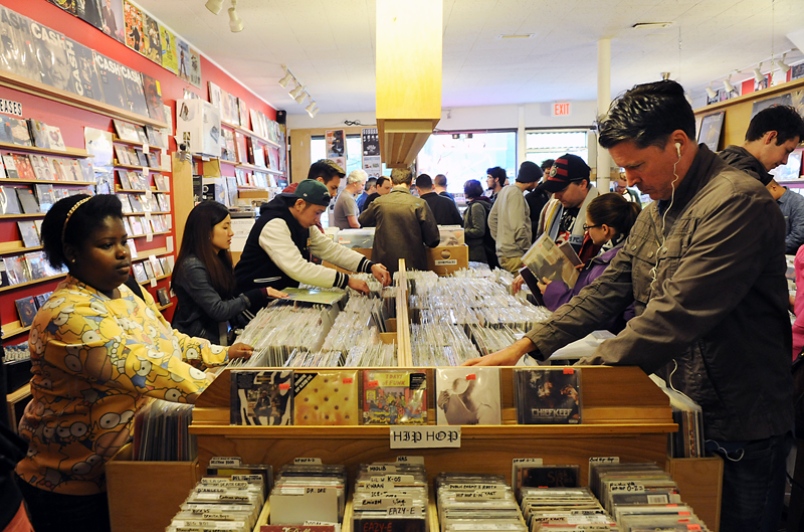The question of whether we can ever be entirely objective about music goes beyond personal taste, touching on the intersections of psychology, culture, and personal experience. After all, Music is an art form deeply intertwined with human emotion, identity, and societal context, which complicates the notion of pure sonic objectivity.
Firstly, it’s crucial to acknowledge that music, by its very nature, is subjective. It is an art form that is designed to evoke emotions, provoke thought, and connect with individuals on a personal level. The interpretation of music is inherently influenced by the listener’s personal experiences, cultural background, and emotional state at the time of listening. For instance, a piece of classical music might be appreciated for its technical complexity by one person, while another might find it dull or overly complex based on their tastes and exposure to different music genres. On the flipside, house music can be appreciated for its hypnotically infectious rhythms which are built on repetitive beats and basslines, while others, who prefer variation in melody, rhythm and structure, will find the 4/4 beat monotonous and the lack of narrative disengaging.
The Complexity of Objectivity in Music: Navigating Personal, Cultural, and Emotional Influences
Even music critics, myself included, who often strive for objectivity in their analyses, are not immune to these influences. While we can apply criteria such as technical skill, originality, production quality, the sharpness of the hooks and lyrical content, these reviews are still filtered through their own personal biases and cultural lenses. A critic’s background, preferences, and even mood can influence their interpretation and review of a piece of music. This is why reviews can vary widely from one critic to another; what one considers a masterpiece, another might find underwhelming or pedestrian.
Moreover, the cultural context cannot be overlooked. Music is often a reflection of the society in which it is created, and different cultures have different musical traditions, scales, and rhythms that may appeal to some and not others. What might be considered beautiful and innovative in one culture could be perceived as discordant or alien in another. This cultural subjectivity means that complete objectivity is elusive, as music cannot be separated from the cultural and social contexts that shape both its creation and reception.
Furthermore, the emotional impact of music is highly personal. A song that resonates deeply with one individual might leave another unmoved. This is because music often acts as a trigger for memories and emotions, making the experience of listening unique to each person. The subjective nature of this experience means that different people will always have different opinions on the same piece of music.
Emotional Connections and Personal Relationships
Music has the uncanny ability to act as a bridge between individuals, linking us to the people who matter most in our lives. A single melody can recall a special moment shared with a loved one or reignite feelings from a past relationship. These emotional associations often develop from experiences such as listening to a parent’s favourite songs, celebrating with friends, or even mourning losses. The tracks that soundtrack these moments become more than just sounds; they are imbued with memories and emotions that shape our personal music landscape.
The Impact of Timing in Musical Discovery
The circumstances under which we discover a piece of music significantly colour our perception of it. For many, a song that serves as a solace during a challenging period may hold a special place in their heart long after the difficulty has passed; this is why our coming-of-age soundtracks stick with us throughout our lives. The music which salved growing pains continues to bring us comfort when the disorientating confusion of adolescence is far behind us in the rearview mirror. This phenomenon is a testament to music’s role as a therapeutic tool, not just an auditory experience. The timing of a song’s introduction into our lives can make it almost impossible to detach the music from the context, thus influencing our judgement about its value and meaning.
The Influence of Discovery Mode
How we come across new music can also affect our appreciation of it. When a song comes recommended by a friend whose taste we respect, we are more likely to give it a chance with a positive predisposition. Conversely, when we feel pressured to enjoy certain tracks, perhaps due to their popularity or critical acclaim, our natural inclination might be to resist. This resistance can stem from a desire for autonomy in our choices or from a backlash against perceived mainstream coercion. The mode of discovery, therefore, plays a crucial role in shaping our emotional engagement with music. Few music discovery experiences match the moments when we catch a track by chance and instantly connect with it on a visceral and intrinsic level.
The Cultural and Societal Context
Beyond personal and situational factors, the cultural and societal context in which we experience music also plays a significant role in our subjective interpretations. Music often reflects the values, struggles, and aspirations of the culture it originates from.
Listeners from different backgrounds may therefore react uniquely to the same piece of music, influenced by their own cultural narratives and societal norms. This diversity in reception highlights the difficulty in establishing a universal, objective standard for music appreciation. While there are some artists who can appeal to a broad spectrum of people from all walks of life, and transcend age, genre and cultural boundaries, such as The Beatles, for the most part, universal appeal is unviable, and it is unrealistic and counter-productive for artists to attempt to appeal to the masses.
Conclusion
The depth of our interaction with music is influenced by a mosaic of factors, from deeply personal connections to broader cultural contexts. These elements intertwine to form a unique auditory experience that is profoundly personal and subjective. Given this complexity, it seems unlikely that we can ever truly detach our evaluations of music from our individual experiences and cultural backgrounds. Thus, while objectivity in music appreciation is an appealing concept, it remains largely unattainable. Music, by nature, is destined to be experienced subjectively, resonating differently with each listener, shaped by the myriad threads of their lives.
The beauty of music lies in its ability to mean different things to different people, and it is this diversity of interpretation that makes music such a rich and vital part of human culture.
Article by Amelia Vandergast


